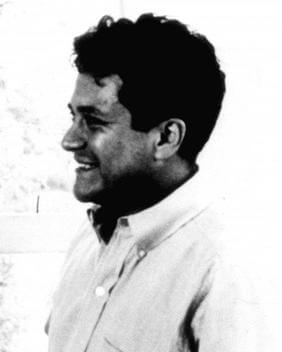
With reference to the Brittanica.com bio, Carlos Castaneda (born December 25, 1925, Cajamarca, Peru—died April 27, 1998, Los Angeles) was a Peruvian-born anthropologist and writer who was considered a father of the New Age movement for his series of books based on the mystical secrets of a Yaqui Indian shaman. Though many critics came to believe that the works were more fiction than fact, they became international best-sellers, translated into some 17 languages.
An enigmatic figure who refused to be photographed or recorded, Castaneda offered conflicting autobiographical information, and much of his early life was unclear. Though he claimed to have been born in São Paulo, Brazil, U.S. immigration records listed his birthplace as Cajamarca. It was known that in 1951 he moved to the United States, where he studied anthropology at UCLA (Ph.D., 1973). According to Castaneda’s writings, during a trip to Arizona in the early 1960s, he met Don Juan Matus, a Yaqui who allegedly could manipulate time and space. Castaneda became his apprentice, and the two men embarked on a series of hallucinogen-fueled adventures. In 1965 Castaneda returned to Los Angeles and began writing about his experiences.
The Teaching of Don Juan: A Yaqui Way of Knowledge was published in 1968 and quickly became a best-seller. With its descriptions of “non-ordinary reality,” it proved particularly popular with American youth disillusioned with the Vietnam War. A series of books followed, including A Separate Reality: Further Conversations with Don Juan (1971) and Journey to Ixtlan: The Lessons of Don Juan (1972). As his fame grew, however, scholars began casting a more critical eye on Castaneda’s writings, and a consensus arose that his works, though still viewed by many as meritorious, were fiction. Castaneda insisted that what he wrote was true, and he receded from the public eye. In his later life he gathered women around him in a cult-like community. His death in 1998 was not publicly revealed for nearly two months.
Castaneda serves as a vital example for Deleuze and Guattari particularly in A Thousand Plateaus of a practice of the body, especially in relation to what they call, in plateau 6, “making oneself a body without organs.” Although they do not refer to him in Anti-Oedipus, Castaneda appears in the Anti-Oedipus II seminar, session 1 (12 February 1973) regarding the need for an “ally” or mentor to guide one’s apprenticeship in making a body without organs; briefly in the same context in session 2 (26 March 1973), to announce a longer discussion “at the next session” (for which we have no transcript); and briefly in session 3 (14 May 1973). Deleuze refers to Castaneda twice more, in the first Cinema seminar, session 8 (26 January 1982) with reference to Castaneda’s practice of “stopping the world” and also to enlarged molecular perceptions; second, in the final session of the Foucault seminar (2 June 1986) with reference to lines of the universe as well as the series of dangers that one risks when confronting such lines. The latter reference recalls the discussion of the body without organs in A Thousand Plateaus where Deleuze and Guattari are quite clear about their judgment on Castaneda’s writings: “the reader may begin to doubt the existence of the Indian Don Juan, and many other things besides. But that has no importance. So much the better if the books are a syncretism rather than an ethnographical study, and the protocol of an experiment rather than an account of an initiation” (161-162). [Entry: Stivale, 2024]